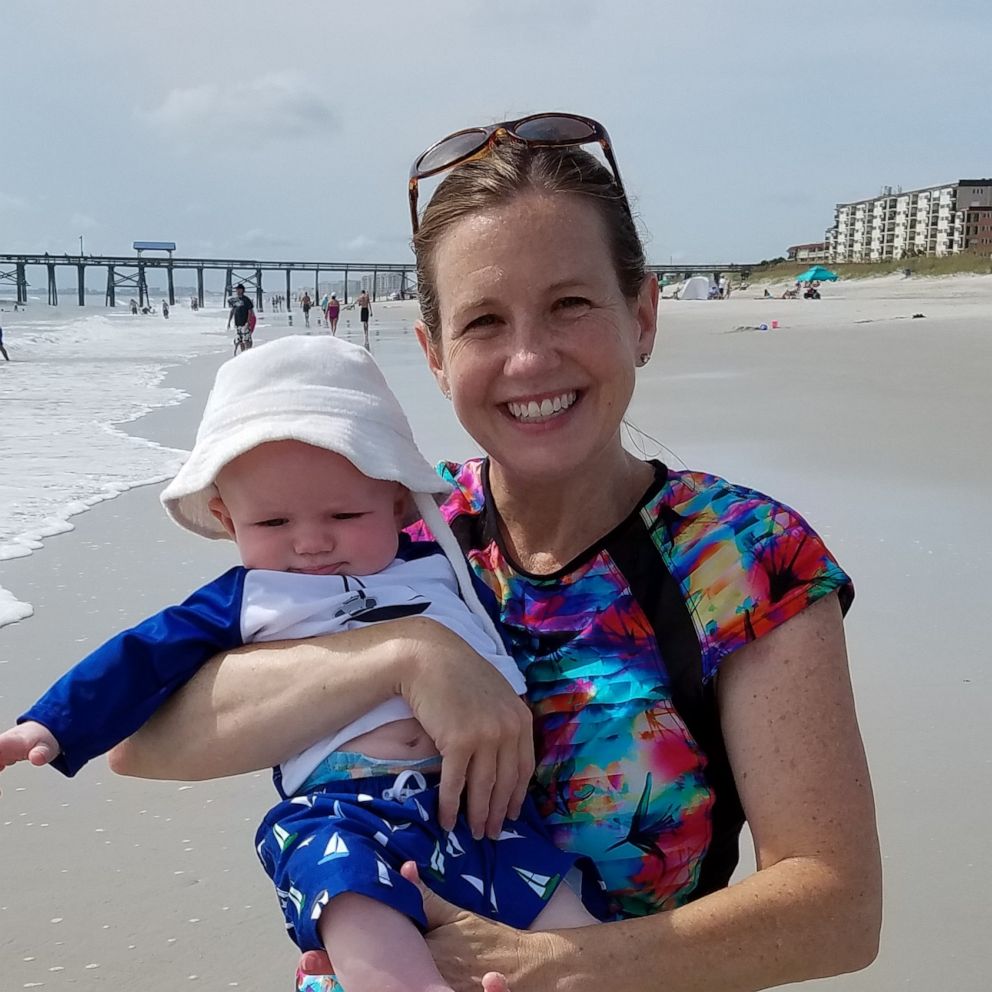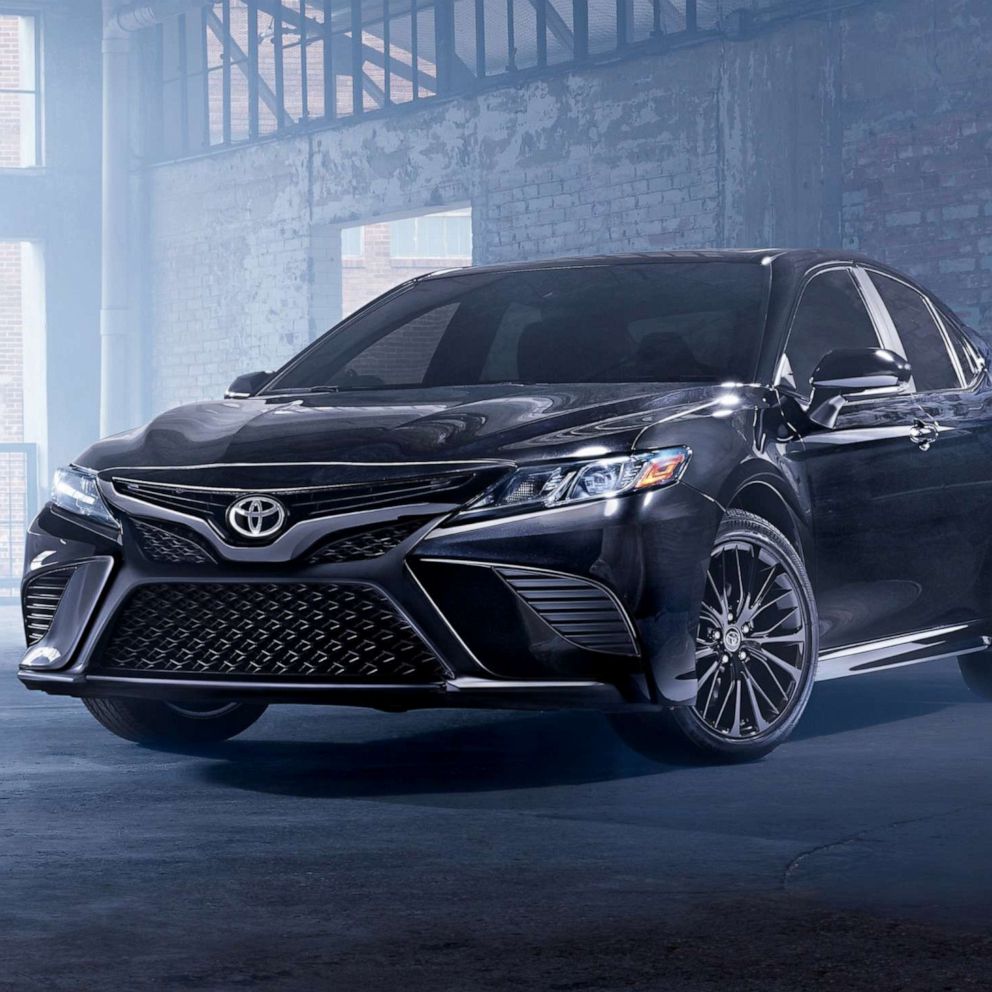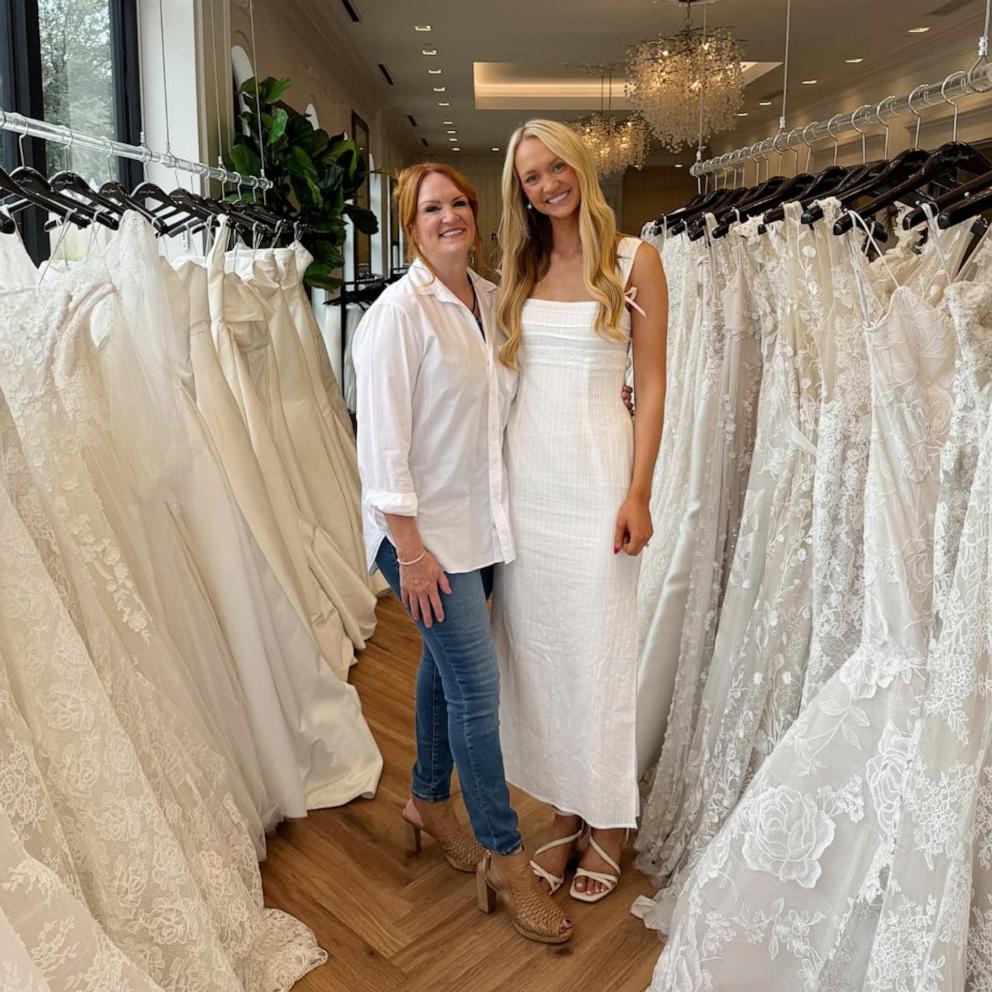Government launches probe into Evenflo car booster seat reveals children could be at risk
A House subcommittee announced Wednesday it will launch a probe into car seat manufacturer Evenflo, just days after ProPublica, the nonprofit newsroom that produces investigative journalism, released a report on the sales of booster seats that it says are potentially unsafe in certain types of crashes.
The report, published Thursday, says Evenflo marketed its Big Kid booster seats for children who may be too small to be protected in the event of a side-impact crash.
"Our investigation spanned over a year, and required combing through hundreds of pages of legal filings, internal corporate documents and videos, dozens of hours of depositions, and hundreds of hours of interviews with car safety experts, customers and victims," Jesse Eisinger, editor of the ProPublica piece told "Good Morning America."
Rep. Raja Krishnamoorthi, D-Ill., the chairman of the Subcommittee on Economic and Consumer Policy, and subcommittee member Rep. Katie Porter, D-Calif., said Wednesday they'd sent a letter to the company seeking more information on the reported issue.
"Evenflo has marketed the 'Big Kid' seat as safe and 'Side Impact Tested,'" the representatives wrote in their letter. "That safety representation appears to be inconsistent with the video evidence of side impact testing. In fact, your company’s internal tests appear to show that side impacts could put children sitting in the 'Big Kid' seat in grave danger."
Side-impact crash test videos obtained by ProPublica are reported to show child-size dummies buckled into Evenflo booster seats remaining in the seat but being tossed sideways in a manner that the report says can lead to serious neck or head injuries.
"Our findings: in the absence of a federal standard for side-impact crashes, Evenflo made up its own booster seat tests -- and passed itself," Eisinger told "GMA." "But its own top engineer admitted that if real children were subject to the crashes' forces in its tests, they could be catastrophically injured or even die."
In its report, ProPublica notes how Evenflo discussed its crash tests on its website, telling parents those tests were "rigorous," simulating realistic, side-impact crashes.
"In reality, Evenflo tests were anything but stringent, internal company documents show," ProPublica wrote. "The company’s tests show that when child-sized crash dummies seated in Big Kid boosters were subjected to the forces of a T-bone collision, they were thrown far out of their shoulder belts. Evenflo’s top booster seat engineer would later admit in a deposition if real children moved that way, they could suffer catastrophic head, neck and spinal injuries — or die."
In a statement to "GMA," Evenflo said that the booster exceeded all federal safety requirements and that ProPublica’s investigation focused on only one scenario which was how the Big Kid booster seats performed "in a severe, far-side impact crash."
"That singular focus is not a luxury that a car seat manufacturer has," the company said. "After all, our consumers don’t know at the time of purchase what kind of crash they may unfortunately become involved in while their child is in the vehicle. As a responsible car seat manufacturer, consequently, we must design to protect a child in a multitude of reasonably foreseeable accident types. Indeed, the company receives praise from consumers in all kinds of accidents with children of varied sizes, including those under 40 lbs. -- frontals, near-side-impacts, far-side impacts, rollovers and rear-side impacts."
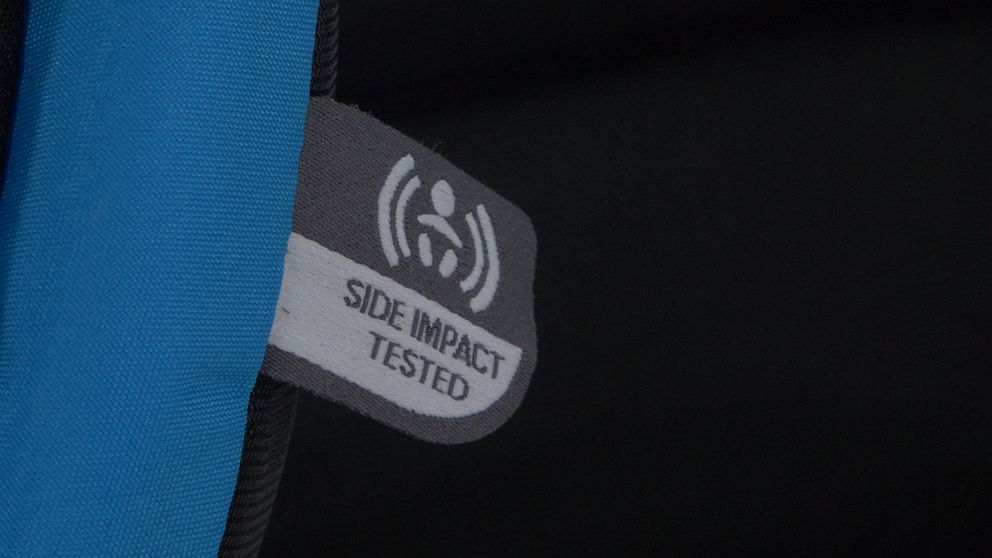
There is currently pending litigation against Evenflo in the case where a 5-year-old child suffered from paralysis after riding in a Big Kid booster with the backrest during a driver's side crash, ProPublica reported. One issue is whether the seat should be used by children between 30 and 40 pounds. ProPublica reported that Canadian regulations mandate a 40-pound minimum and the American Academy of Pediatrics recoomends that the five-point harness seat be used until children grow out of them.
The child injured in the crash was just under 37 pounds and within the labeled weight limit of the booster with the backrest, according to ProPublica.
"Evenflo feels great sympathy for families and children involved in motor vehicle crashes, especially where serious injury occurs while a child is seated in a car seat we manufactured," Evenflo said. "Such concern is a primary driver for the work we do. After all, we are parents and make car seats for our children and grandchildren too. If sympathy was the issue, we would have no dispute with the Brown family and there would be no need for a trial. Evenflo defends the Big Kid seat in the Brown case because our product performed as it was designed to do and did not cause the child’s injuries -- the severity of the crash and/or driver error did. Indeed, the crash underlying the Brown case is more severe than 98% of all side-impact crashes."
Evenflo also stated that its hopes for a "balanced article by ProPublica were not realized."
ProPublia reported that in 2016 Evenflo changed its Big Kid booster parameters to 40 pounds, but not for all of its boosters. They reported that Evenflo's lawyer said that was to accomodate Canadian regulations. ProPublica said it's still possible to purchase Evenflo's Big Kid booster with 30 pound child weight minimums. The news organization said it bought two of the boosters directly from Evenflo's website in January.
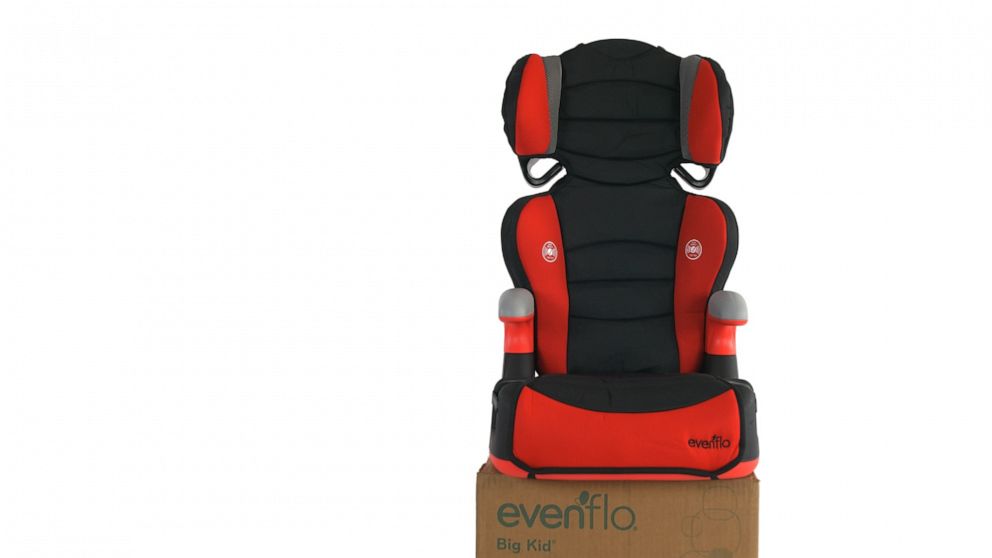
ProPublica said the boxes did not specify age for use, but labels said the boosters were safe for kids weighing as little as 30 pounds.
"After ProPublica’s inquiries, the website changed: Now it says the minimum weight is 40 pounds. So ProPublica ordered another Big Kid from Evenflo’s website. The booster’s box, manual and label still say it is safe for children as small as 30 pounds," ProPublica wrote.
Evenflo said its Big Kid belt-positioning booster has been safely used for over a decade.
"It has boosted up children, including those under 40 lbs. to use the vehicle restraint system and survive and thrive after all kinds of accident scenarios," Evenflo said in its statement.
Evenflo's website states that the Big Kid booster has a weight requirement of at least 40 pounds. Other mass retailers like Amazon, Target and buybuyBaby list the same.
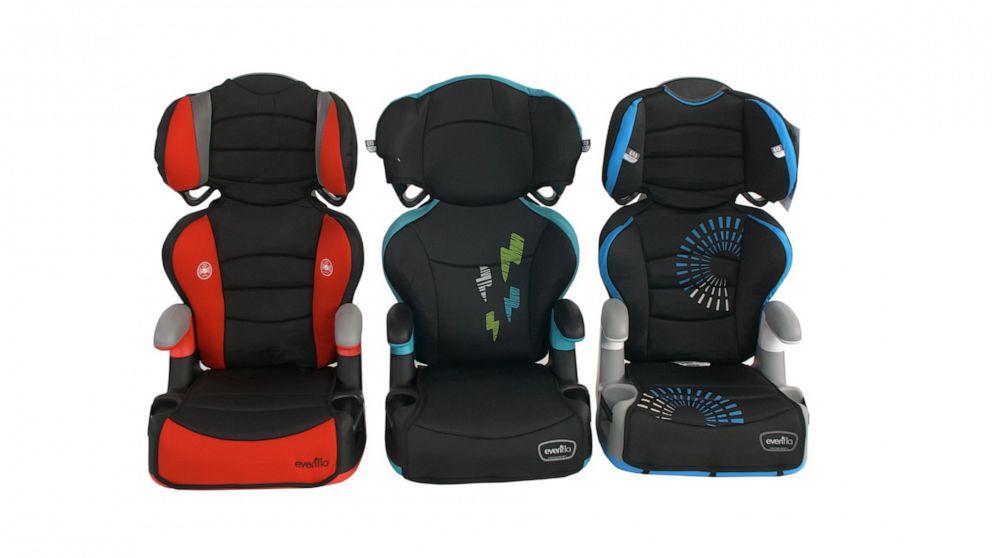
Evenflo's website makes no mention of the weight limit being 30 pounds, with or without the use of the removable backrest.
Walmart lists the booster's weight limit as 30 to 110 pounds with the backrest. For a no-back booster, the weight limit says 40 to 110 pounds.
A 2017 YouTube showing the outside of the Big Kid booster box also reads the weight limit as 30 to 110 pounds with the backrest and 40 to 110 pounds without the backrest.
The Big Kid booster seat's owner's manual from 2013 lists the same -- a 30-pound weight limit with the backrest, and a 40-pound limit without it. The seat's 2017 manual lists the minimum weight to be 40 pounds
ProPublica reported that in February 2012, Eric Dahle, a safety engineer at Evenflo, recommended the brand stop selling booster seats for children who weigh less than 40 pounds. They also reported that Eveflo's lawyer told them that at the time the company "reached a consensus decision to keep the minimum weight at 30 pounds to accomodate tall, thin children who had outgrown their harnessed seat."
